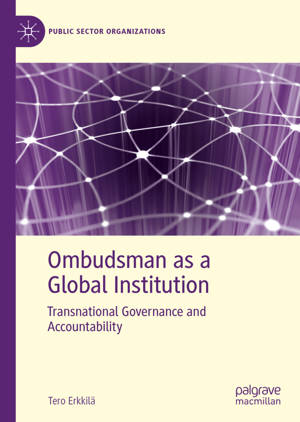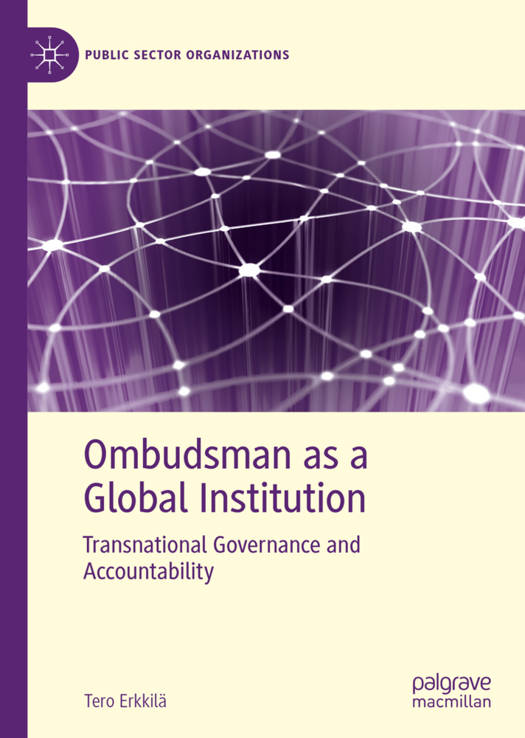
Je cadeautjes zeker op tijd in huis hebben voor de feestdagen? Kom langs in onze winkels en vind het perfecte geschenk!
- Afhalen na 1 uur in een winkel met voorraad
- Gratis thuislevering in België vanaf € 30
- Ruim aanbod met 7 miljoen producten
Je cadeautjes zeker op tijd in huis hebben voor de feestdagen? Kom langs in onze winkels en vind het perfecte geschenk!
- Afhalen na 1 uur in een winkel met voorraad
- Gratis thuislevering in België vanaf € 30
- Ruim aanbod met 7 miljoen producten
Zoeken
€ 90,95
+ 181 punten
Uitvoering
Omschrijving
This book explores the ombudsman as a global institution. It has spread all over the world and its institutional development is increasingly being governed transnationally. Initially an institution of administrative law, the ombudsman has become a human rights institution and institution of good governance. These ideational shifts have influenced the global diffusion of the ombudsman but also the way in which this institution of accountability functions. The ombudsman is a peculiar institution of public accountability - both an institution and individual - that observes changes in the general political climate and engages in renegotiations of its intra-institutional position. The global models associated with the ombudsman are a source of organizational ideas, legitimacy, and sense of orientation, but they treat institutional actors differently, working also as mechanisms of inclusion and exclusion. The book tracks the global diffusion and institutional evolution of the ombudsman. Itschapters on institutional cases further explore the joint institutional history of the Parliamentary Ombudsman and the Chancellor of Justice in Finland, and the European Ombudsman.
Specificaties
Betrokkenen
- Auteur(s):
- Uitgeverij:
Inhoud
- Aantal bladzijden:
- 231
- Taal:
- Engels
- Reeks:
Eigenschappen
- Productcode (EAN):
- 9783030326746
- Verschijningsdatum:
- 28/02/2020
- Uitvoering:
- Hardcover
- Formaat:
- Genaaid
- Afmetingen:
- 148 mm x 210 mm
- Gewicht:
- 439 g

Alleen bij Standaard Boekhandel
+ 181 punten op je klantenkaart van Standaard Boekhandel
Beoordelingen
We publiceren alleen reviews die voldoen aan de voorwaarden voor reviews. Bekijk onze voorwaarden voor reviews.









